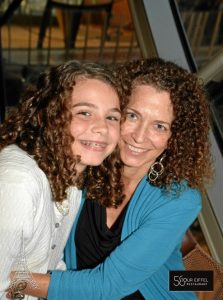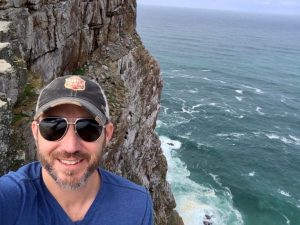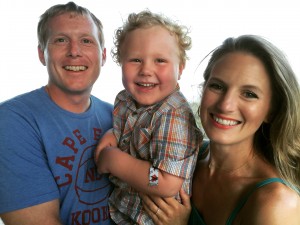This article is part of our series of alumni articles in which we invite BIC alumni to contribute articles connecting their own work, education, experiences, or interests to their BIC education. Today’s contribution is from Mary Ziehe Moore (’05), a senior academic advisor at Baylor University. We hope you enjoy, and if you are interested in contributing an article, email us at BIC@baylor.edu.
—————–
I both chose and did not choose to be where I am today: a Baylor grad (twice over), working as an academic advisor in Baylor’s College of Arts & Sciences. I imagined something very different when I set out from high school to college. Then, I believed that God had given me a very specific call to full-time church ministry, probably as a missionary doctor but maybe as a pastor or youth minister. And so I chose Baylor, and the Religion major, and premed. As an afterthought, I also chose the BIC.
I justified my desire to join the BIC with the thought that it would be virtuous for a missionary to understand other cultures. Really, I just thought the courses would be fun, and the program would give me a ready-made community in the large mass of the university. It’s funny how life works out, and “afterthoughts” can turn out to be some of the most important thoughts of all.
The premed decision was reversed almost immediately. While science and medicine and healing the sick were all things I knew I could do and like, I decided I didn’t want to pursue them to the exclusion of my “truer” call to care for souls. It took much longer, and a lot more heartbreak, to change my understanding of ministry. A few years into undergrad, I was forced to admit that I shouldn’t go to seminary, and shouldn’t try to become any kind of full-time church worker. I had entered a long, dark night of the soul—helped along and deepened by a severe attack of clinical depression—and unlike jettisoning premed, this felt like failure.
Always before, I’d had a sense of that God would show me what to do next; now, the silence was deafening. And so there I was, without a vocation and without tangible guidance from God, and yet I still had to do something with myself. Everything I considered, I also felt a certain amount of scorn for. This or that career might be fine for some people, but for me it could only be a poor substitution for the calling that had cast me out. I was hurt, and bewildered, and wracked by shame.
This sounds hyperbolic but is the literal truth: when everything fell apart, two things kept me going and helped me find my feet. First, relationships with people who cared for me, and second, my studies in the BIC—and the BIC gave me most of the people in Waco who cared for me. Without both, I probably would have had to leave Baylor to survive. Other connections, to campus organizations, to church, to the other parts of my education, all proved shallow (and in some cases, downright hostile to my well-being). It was the “afterthought” of joining the BIC that gave me what I could hold onto.
That “small cohort of fellow learners” gave me my Alexander hallmates, who became my best friends. In various places in and near campus, we created homes together for four years, and laughed and cried and fought like family. We studied together, and procrastinated together, and we got to see how other parts of the university lived because none of us was in the same major. They held onto me when I couldn’t hold onto anything. The engaged faculty of the BIC provided my mentors and truest counselors. I’ve drunk much of their coffee and taken up many of their office hours. They’ve seen my eyes light up due to the ideas they’ve led me to, and sat with me in the darkness of unanswered questions and the gasping tears of depression. They’ve listened and encouraged and inspired, and helped me connect to opportunities to serve and generally to find new paths through Dante’s dark wood.
Though my degrees list REL and ENG, I liked to joke that BIC was my ‘real’ major, and I’m not even sure how much a joke that is. Those were the classes and that was the community that formed me. I learned to listen to people tell their own stories. The world opened up, past and present, with greater diversity and also more points of connection than I could have imagined. Sometimes, I felt like my BIC classes were giving me the Keys to the Universe, but always, they immediately knocked me back out of that comfortable arrogance. Through my BIC studies, I became more willing to admit that I should always listen first, ask questions second, and then listen some more before giving suggestions or making judgments. Beautifully, this is also what I hear from all my BIC brothers and sisters. Because we did it for years in the BIC, it’s less intimidating and more second nature to do the same out in the “real world”—and I believe our “real world” desperately needs its bridge-builders.
Now, I advise students regarding classes and majors and career goals; I also connect them to help for all kinds of other “life” things that come up. It’s not what I expected, but slowly, painfully, and more gladly as time goes by, I’m learning to see vocation differently, and in a way that better reflects the long history of the word in my (Christian) tradition. Vocation isn’t really about a career path, but about how we live within the broad scope of our possibilities. And thank goodness, because we all know the statistics: most of us will have many jobs in our lives, even many different careers in varying fields. If “vocation” is a calling to one specific career, then all of us who change paths are going down a lot of wrong roads until we find the right one, if indeed we ever do. But I’d rather be weaving a tapestry anyway. And one of the very brightest of those threads, and the starting point for some of the loveliest designs in the whole, helping connect one to another, has been the BIC.
Mary Ziehe Moore (’05) is a senior academic advisor at Baylor University.























